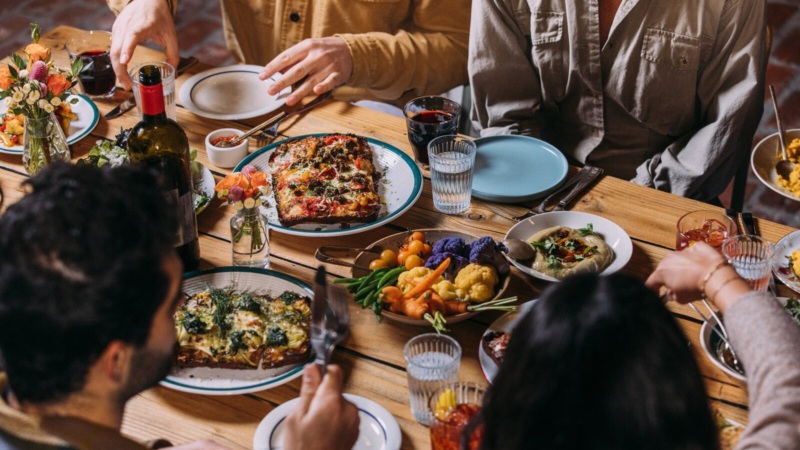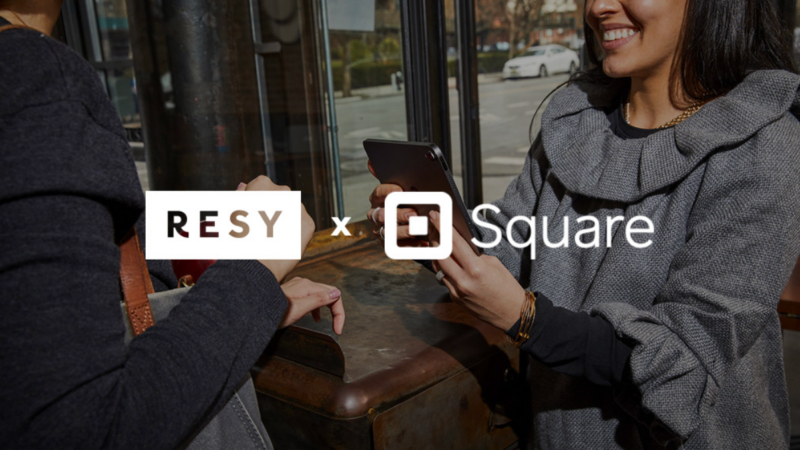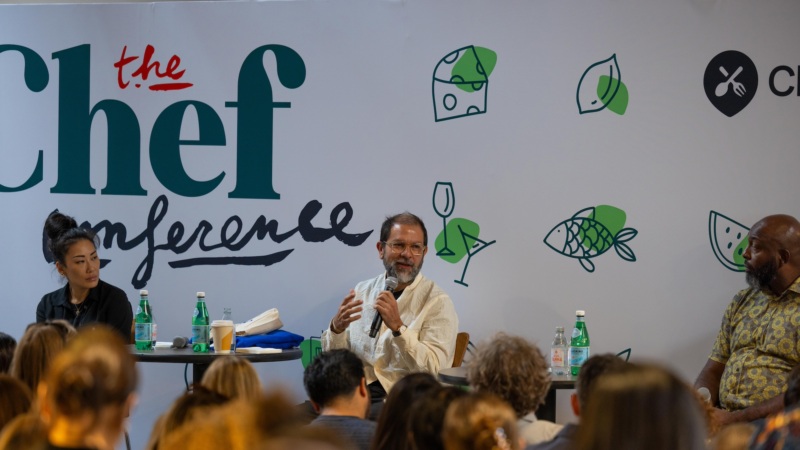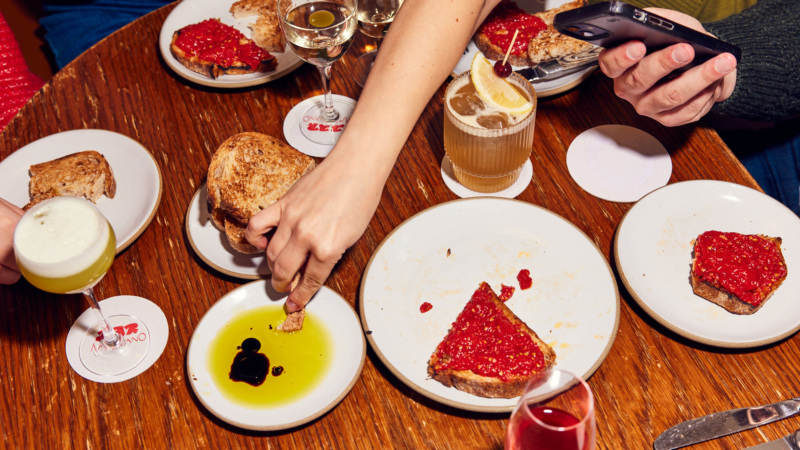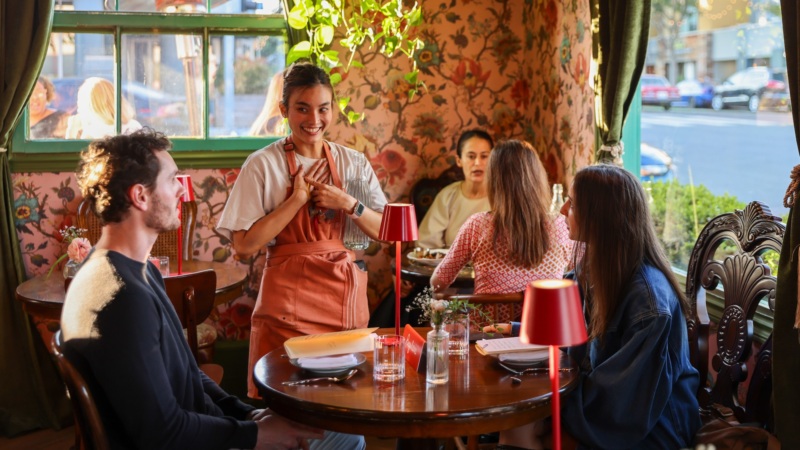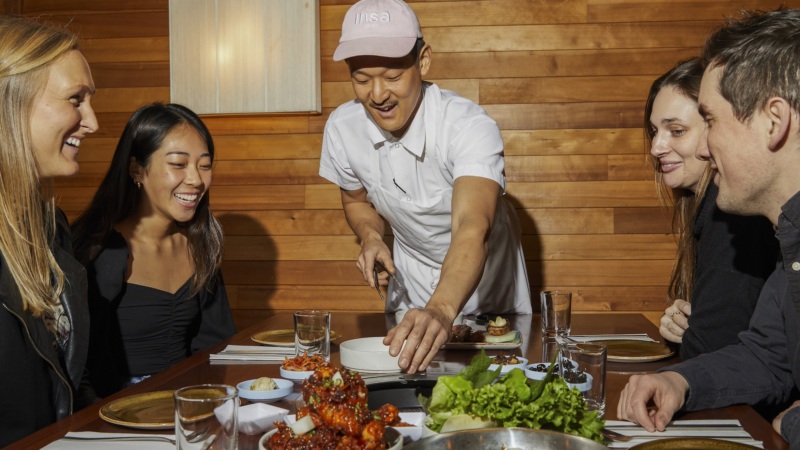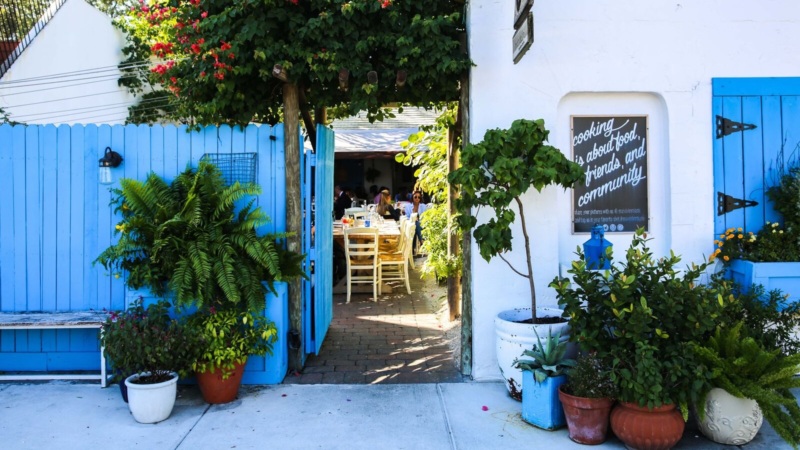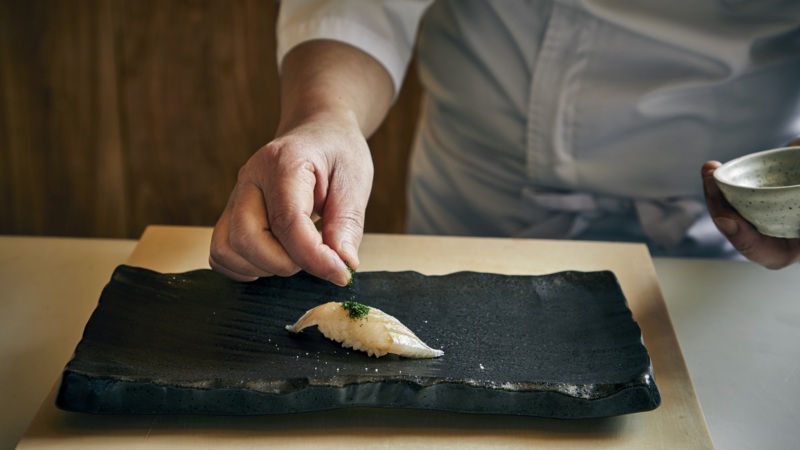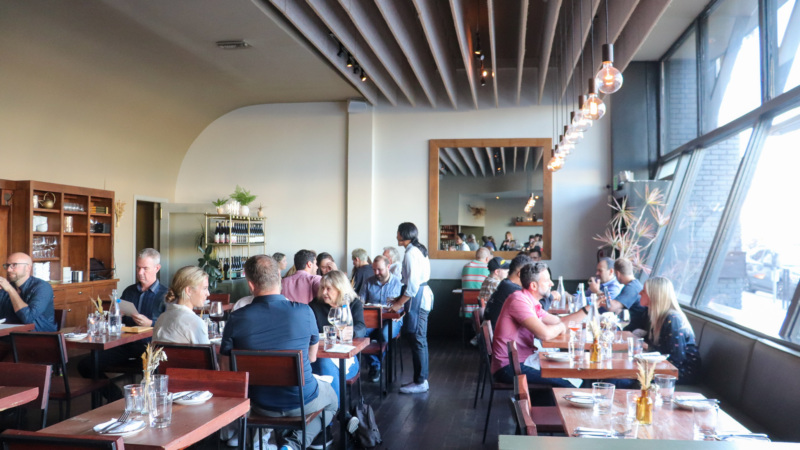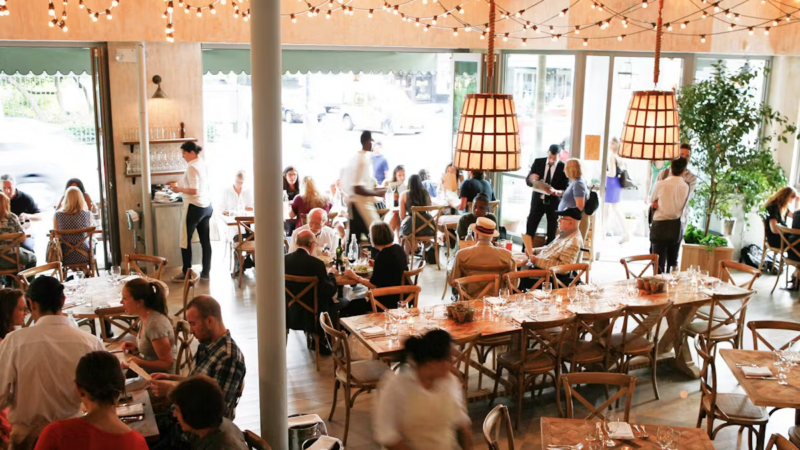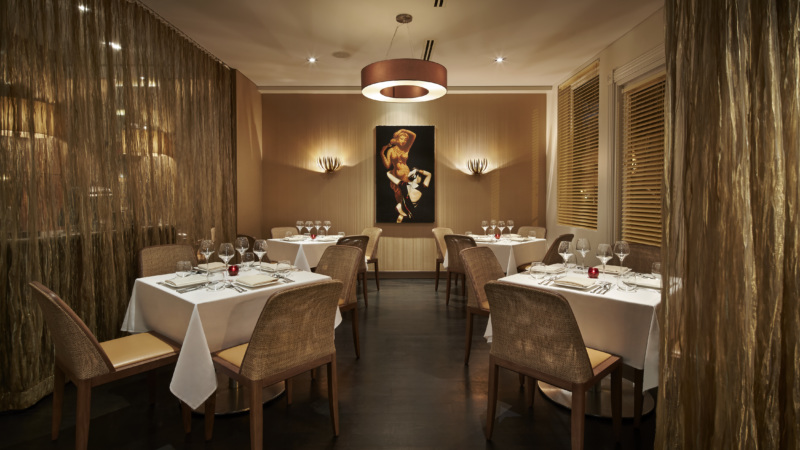
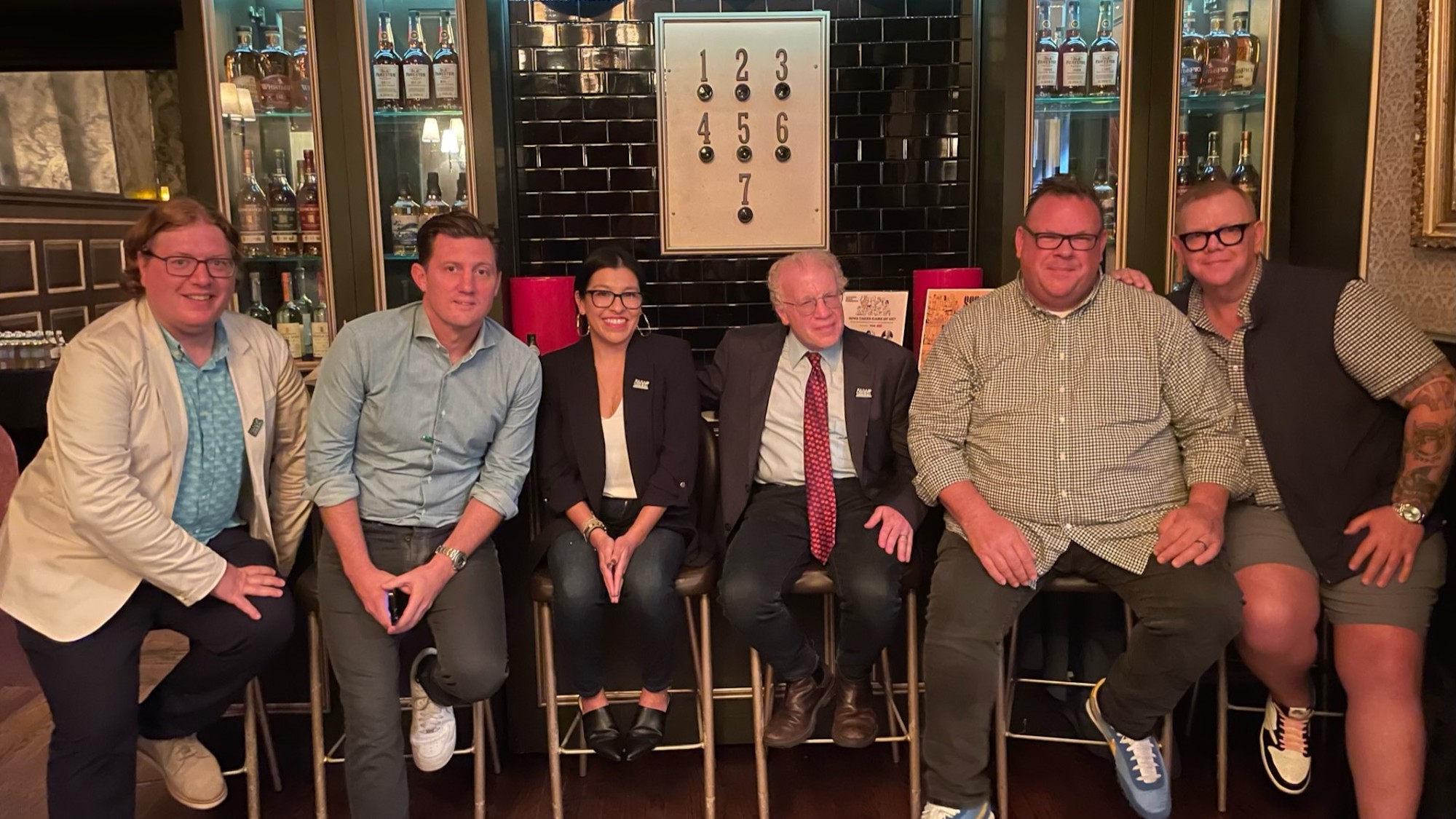
‘Who Takes Care of Us?’ A Candid Discussion About Mental Health in the Hospitality Industry
Recapping an intimate industry roundtable discussion with Southern Smoke Foundation on creating a healthier workplace.
In an industry focused on creating welcoming environments and positive experiences for guests, the question “Who takes care of us?” acutely highlights hospitality workers’ needs for support and resources. Southern Smoke Foundation, a provider of emergency relief funds and a no-cost mental health program for food and beverage workers, used this prompt for an intimate roundtable discussion with Yeshiva University and ROAR (Relief Opportunities for All Restaurants).
The event, which was presented by Resy and American Express, took place at The Raines Law Room at The William in New York City, bringing in a wide range of hospitality leaders and passionate advocates for creating healthier workplaces.
In July 2020, Southern Smoke launched the pilot of “Behind You,” a no-cost mental health program for food and beverage workers and their children. Initially, it launched in the state of Texas in partnership with the University of Houston, serving as a blueprint for the nonprofit’s future initiatives and efforts.
Moderated by Noah Rothbaum, head of cocktail and spirits at Flaviar, the panelists took a deep dive into the mental health crisis and efforts to combat it in the restaurant world. Here’s what they had to say.
Leading with Transparency and Compassion
“Five years ago, we had this talk with a lot of chefs in the room, and everyone in that room, after that day, was changed because of Chris [Shepherd] and the work that Southern Smoke is doing,” Billy Durney, James Beard Award nominee and owner of Hometown BBQ and Red Hook Tavern said. “No one was talking about mental health problems [before],” he added.
Durney recalls approaching Chris Shepherd, the Founding Director of Southern Smoke Foundation, saying, “Hey, I’m just going to lay it out there. I suffer from anxiety and depression – mental health problems – and I’m going to talk to the chefs.” And he did. “What’s so unique about that day was that I got to tell my story, and after, every chef in that room came to me privately and expressed their issues,” Durney said, reflecting on the conversation.
A year later, he found himself still having mental health-related conversations with those chefs. “Right there, I knew that this was a pandemic,” he said, referring to the mental health crisis in the industry. “I never saw it that way because I was in my own problems,” he added. “In our restaurants, we talk about how people are feeling,” Durney said. “You’re normally not supposed to talk about your feelings, but we make it very clear within our organization that the guy at the top has more problems than them, and I’m here to talk about it.”
Durney says the main question he asks himself is: how he can be more helpful? He elaborated, saying “How can we, as leaders within our community, do more and be more impactful? Just like I was impacted that day by sharing my story, now all those chefs I talked to are sharing their story.”
Making Mental Health Resources Available
Through Behind You, Southern Smoke provides grants to universities. In exchange, Southern Smoke can send clients over to them for no-cost counseling.
“We need to make sure that we have the roadmap [for Behind You] built in each state,” Chris Shepherd, Founding Director of Southern Smoke Foundation, said. “This program is going to be going long after I’m gone because it’s always going to be needed, so we have to build that path of success instead of just throwing it all at one thing and see what sticks,” he added.
“We offer as many languages as we possibly can,” Cat Bill, Chief Mission Officer of Southern Smoke Foundation, said. “[It] just depends on what clinicians and what is available for the university, but we’re always trying to find ways to make it work,” she added.
Southern Smoke offers telehealth in an effort to make mental health resources more accessible to people who work in the restaurant industry. “If you can’t get across town because you’re working a double, you can take advantage of telehealth,” Bill pointed out.
Fostering a Community
In April 2020, ROAR was started by a group of friends who work in the hospitality industry. They were eager to figure out ways to support industry workers where they needed it most during the pandemic. At first, that was through cash. “A lot of great things happened while that summer was happening,” Sean Feeney, co-founder of ROAR, said. “People were talking every day – for the first time ever really – honestly and vulnerably communicating with each other about the challenges the industry faces or they face,” he added.
Feeney said it was important for the team to continue the work, even after employees were allowed to go back to work when mandates were lifted. “Since then, we’ve just figured out ways to help where restaurant team members need support the most, whether it’s through financial literacy, mental health or fitness,” he said. “Our dream – and all of our dreams – should be to create a reality where people in our industry, every single person in our industry, is able to get access to the support that they need.”
Our dream – and all of our dreams – should be to create a reality where people in our industry, every single person in our industry, is able to get access to the support that they need.— Sean Feeney
Addressing Needs Reliably and Consistently
“We deal with people that aren’t [feeling] so good, you know, and they’re allowed to not be [feeling] so good when they come up and see us,” said Dr. William Salton, clinical professor of psychology at Yeshiva University. “Because although we’re partnered with Southern Smoke, [their employers] won’t know what’s going on. It’s confidential. They get 20 sessions, and they can talk about whatever they want.”
“Being in therapy is a pain in the butt because you’ve got to look at all these things about yourself that you don’t like, and it’s much easier to cover it up,” Dr. Salton said. “But I can tell you that in our program with Southern Smoke, people stick around. They come for one session for the intake, and they want to continue,” he added.
Southern Smoke Foundation’s no-cost mental health program “Behind You” is currently available in California, Louisiana, Texas, Illinois and New York to all food and beverage workers. Learn more here.
*Opinions and views in articles shared on Resy OS are presented for the purpose of discussion and commentary on topics of interest in the restaurant industry; they should not be viewed as substitutes for advice given by professionally engaged business consultants and advisors.

